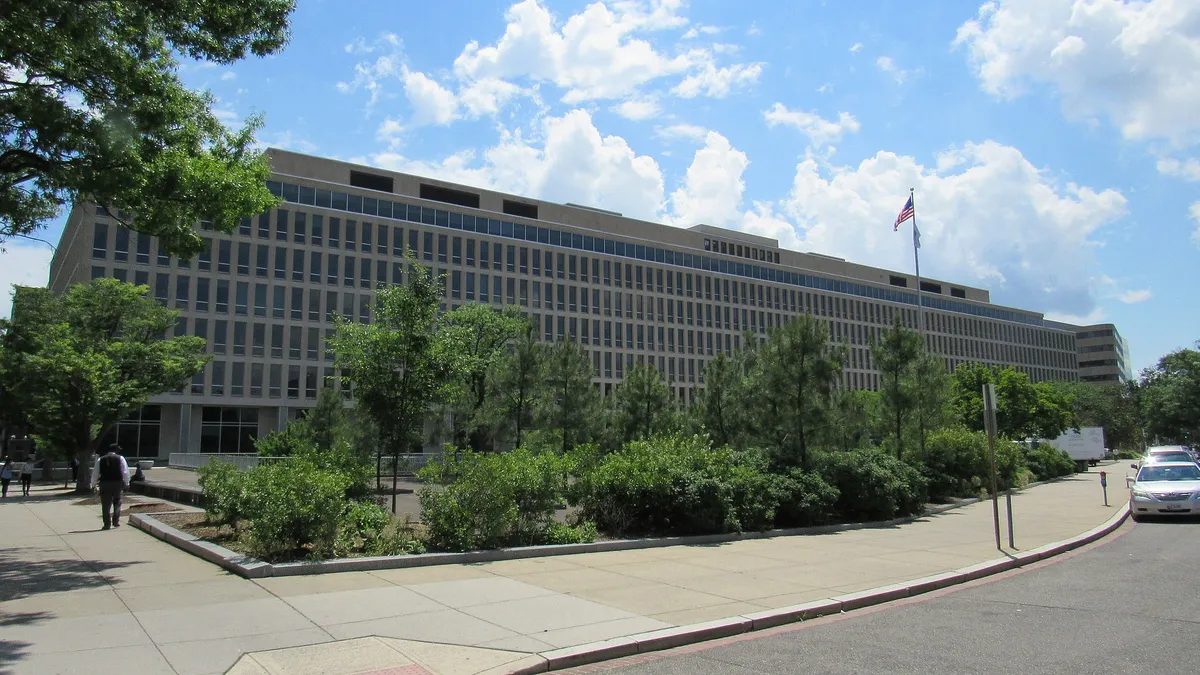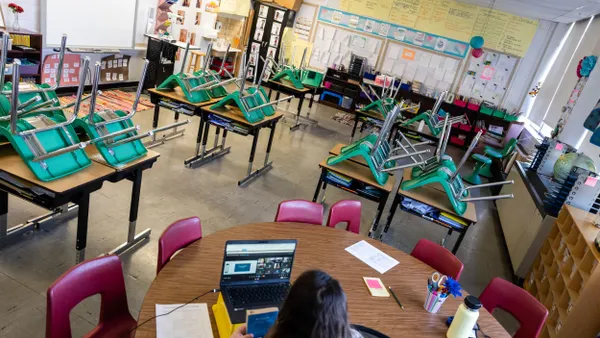Dive Brief:
-
A complaint filed with the U.S. Department of Education claims the Colorado Board of Education denied enrollment for students with disabilities in the schools of their choice.
-
According to current state law, every school district in Colorado allows all students in and outside of that district to seek enrollment there. However, the complaint alleges districts use this law and the flexibility they have under it to deny students with disabilities entry into their programs.
-
The complaint, filed with the department's Office for Civil Rights, requests an investigation under Section 504 of the Rehabilitation Act, which ensures a free appropriate public education for special needs students, and Title II of the Americans with Disabilities Act, which requires that programs reasonably modify services to protect against disability discrimination.
Dive Insight:
"While the discrimination is ongoing, the discriminatory conduct is most prominent during the open enrollment process, which tends to begin at the start of the new year and ends at the start of the following school year," said the complaint, which was filed by Emily Harvey, youth advocacy team leader attorney for Disability Law Colorado. "Significant disability discrimination additionally occurs shortly after the October pupil count."
The complaint specifically highlights some of the bigger districts in the state, including Jefferson County School District, which has a policy allowing the district to rescind a conditional offer of acceptance to students with disabilities "if the school lacks the resources or space available to support the individual choice applicant." Other districts cited include Boulder Valley School District and Cherry Creek School District..
The complaint comes as other states are debating similar issues around open enrollment leading to inequitable entry and discrimination.
In Kansas, for example, some local leaders are concerned a provision passed in April allowing open enrollment will exacerbate educational inequities and funding issues overall. Specifically, they worry allowing families to choose which district students attend will worsen racial and socioeconomic segregation, as those who have the most resources to travel between districts will find it easier to take advantage of the flexibility.
However, proponents of the policy say it could do the opposite. Lower-income students who may not be able to find affordable housing in the higher-income district of their choice could still attend regardless of where they live, they maintain.
A similar debate unraveled in Missouri earlier this year and last year, before a bill that would allow open enrollment in the state was struck down. In its place a narrower law was passed allowing owners of residential and agricultural property in the state to send up to four of their children to any district where they pay school taxes. That law goes into effect July 2023.
Often, school systems find the need to consolidate special education services for specific schools because of staff and specialist costs.
According to an analysis of Massachusetts schools by AASA, the School Superintendents Association, "costs have continued to increase as districts have enrolled a greater number of children with more serious needs." AASA found that between 1989-90 and 2000-01 per-pupil expenditures in special education nearly doubled, from $6,675 to $12,416.
"Policymakers need to be realistic about the rising costs of special education," the AASA report warned. "The increases in the severity of disabilities in the population in general and the increase in the number of young children with moderate and severe disabilities will require greater expenditures in special education in the future."







 Dive Awards
Dive Awards





